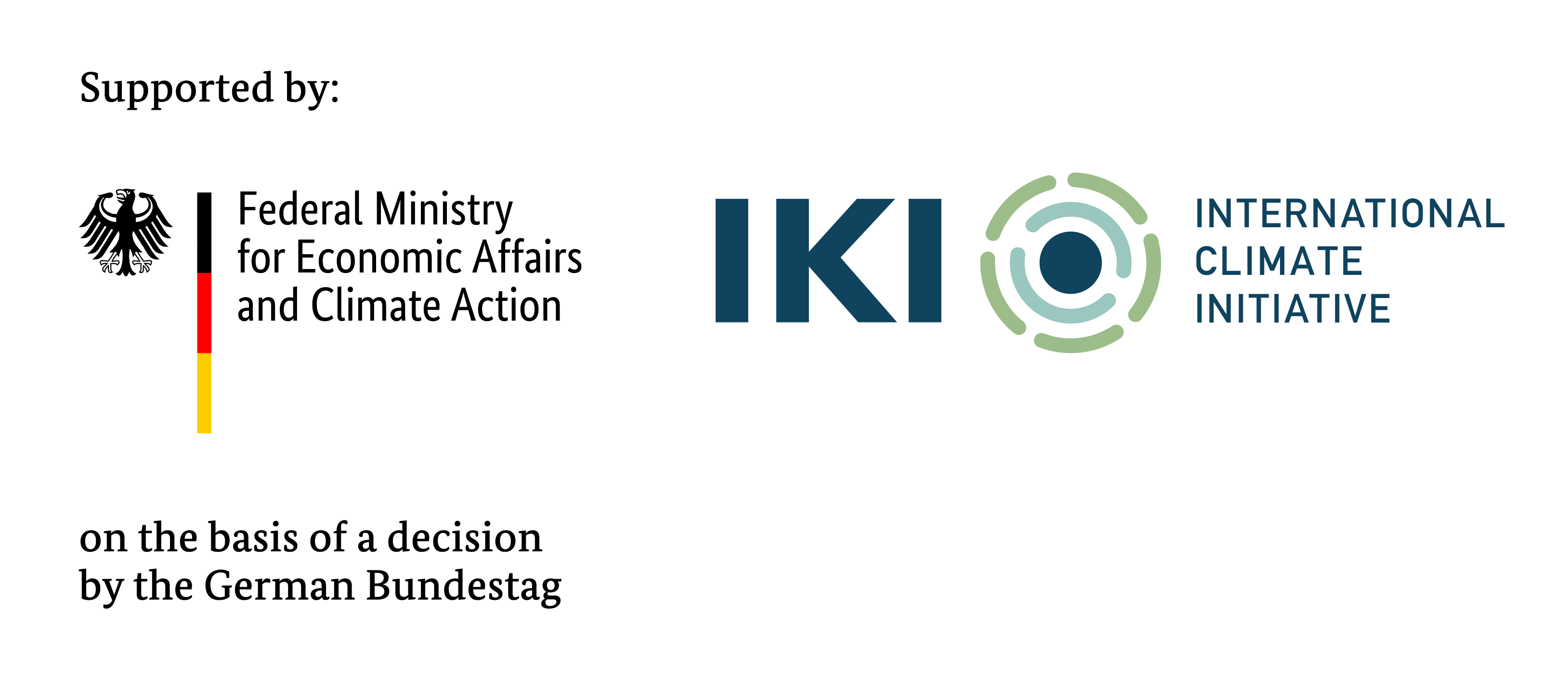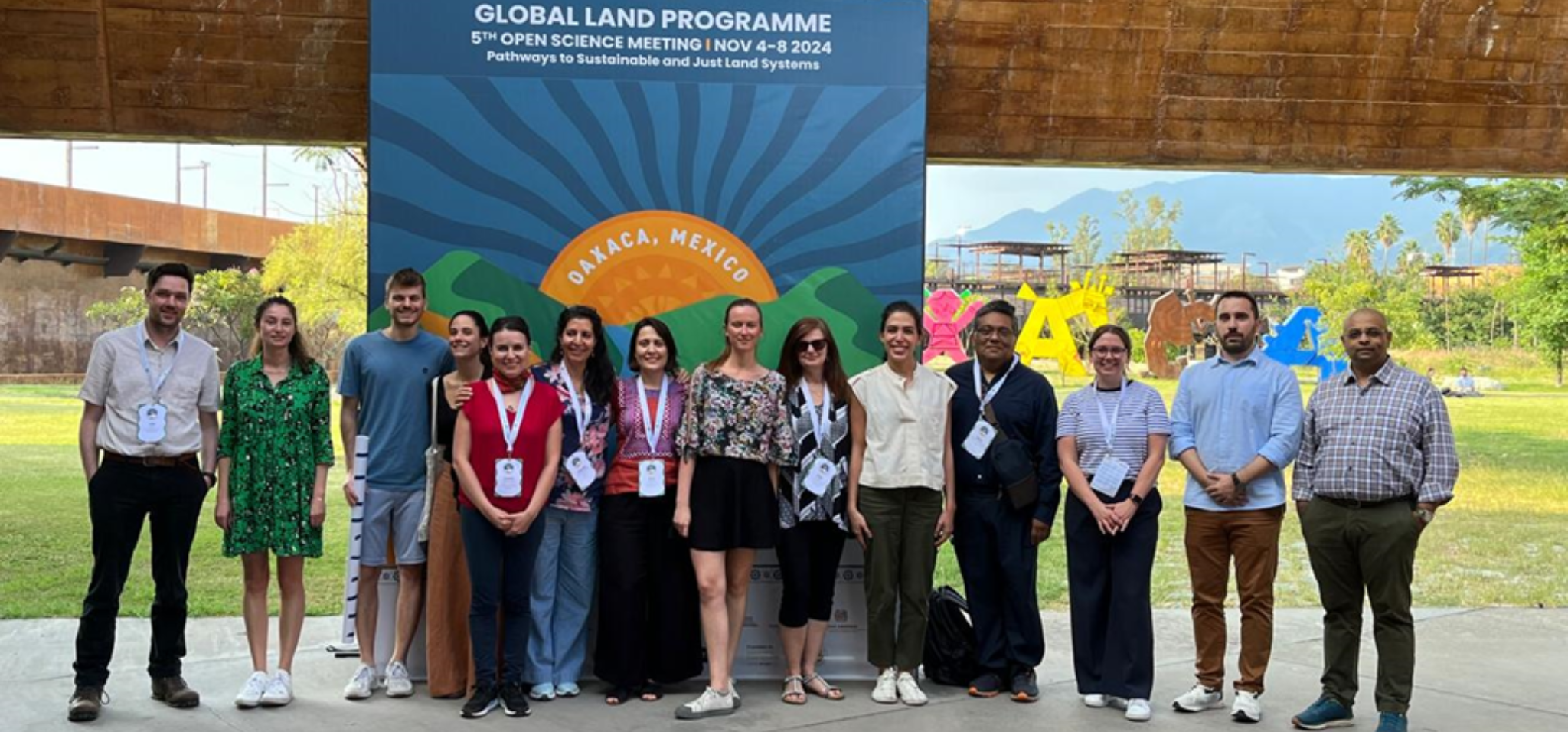
Author: Davide Cozza (SDSN) and Clara Douzal (SDSN).
From November 4th to 7th, members of the FABLE Consortium joined scientists and researchers from across the world at the 5th Open Science Meeting (OSM) of the Global Land Programme (GLP) in Oaxaca, Mexico. This event provided a valuable platform to explore pathways toward sustainable and equitable food and land systems. To make the best of this opportunity, FABLE organized its 15th annual meeting, which offered FABLE members an opportunity to share insights and collaborate on global challenges.
FABLE members actively contributed to the GLP conference, moderating or participating in nearly 20 sessions. Many of these sessions highlighted the role of the FABLE Calculator in identifying synergies and trade-offs in modelling long-term pathways for sustainable land and food systems in their respective countries.
Game on: Reconciling national goals with global sustainability
One of the sessions led by FABLE was "Mini-Scenathon to Reconcile Local Objectives with Global Sustainability," coordinated by the FABLE Secretariat and FABLE teams from Canada and Mexico. Participants engaged in an immersive multi-country pathway-building exercise to balance national priorities with global sustainability targets. By stepping into the shoes of country representatives from Ministries of Agriculture, Environment, and Health, participants tested various levers for change using the FABLE Calculator, designing scenarios to meet national and global sustainability targets on food security, GHG emissions, biodiversity, nitrogen use, and land use change.
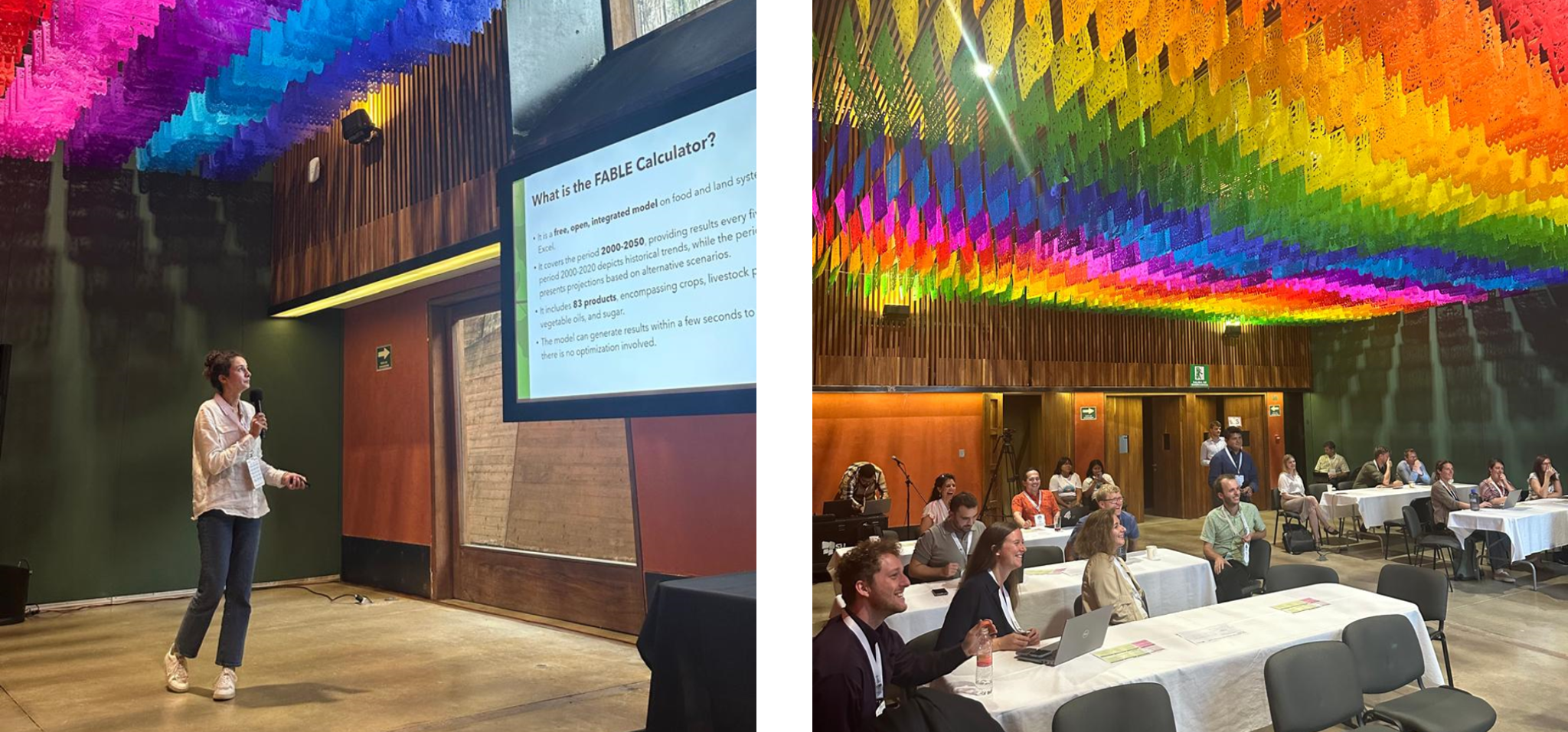
On the left, Clara Douzal (SDSN) illustrating the FABLE Calculator during the "Mini-Scenathon" session. On the right, partecipants of the "Mini-Scenathon" sessions analysing the integrated global results.
Country-level pathways for sustainable food and land-use systems
Charlotte Gonzalez Abraham (FABLE Mexico) presented a study focused on long-term pathways addressing Mexico’s land and food system challenges using the FABLE Calculator. Mexico’s agricultural sector, characterized by small farms and extensive cattle ranching, faces significant issues like deforestation, low agricultural yields, and malnutrition. The FABLE Mexico team presented a series of pathways that were co-developed with the Secretary of Agriculture and Rural Development (SADER). The goal was to assess cross-sectoral policies and explore how the agricultural sector can foster synergistic outcomes to between agriculture, water, land-use, biodiversity, healthy diets and GHG emissions within the Mexican context.
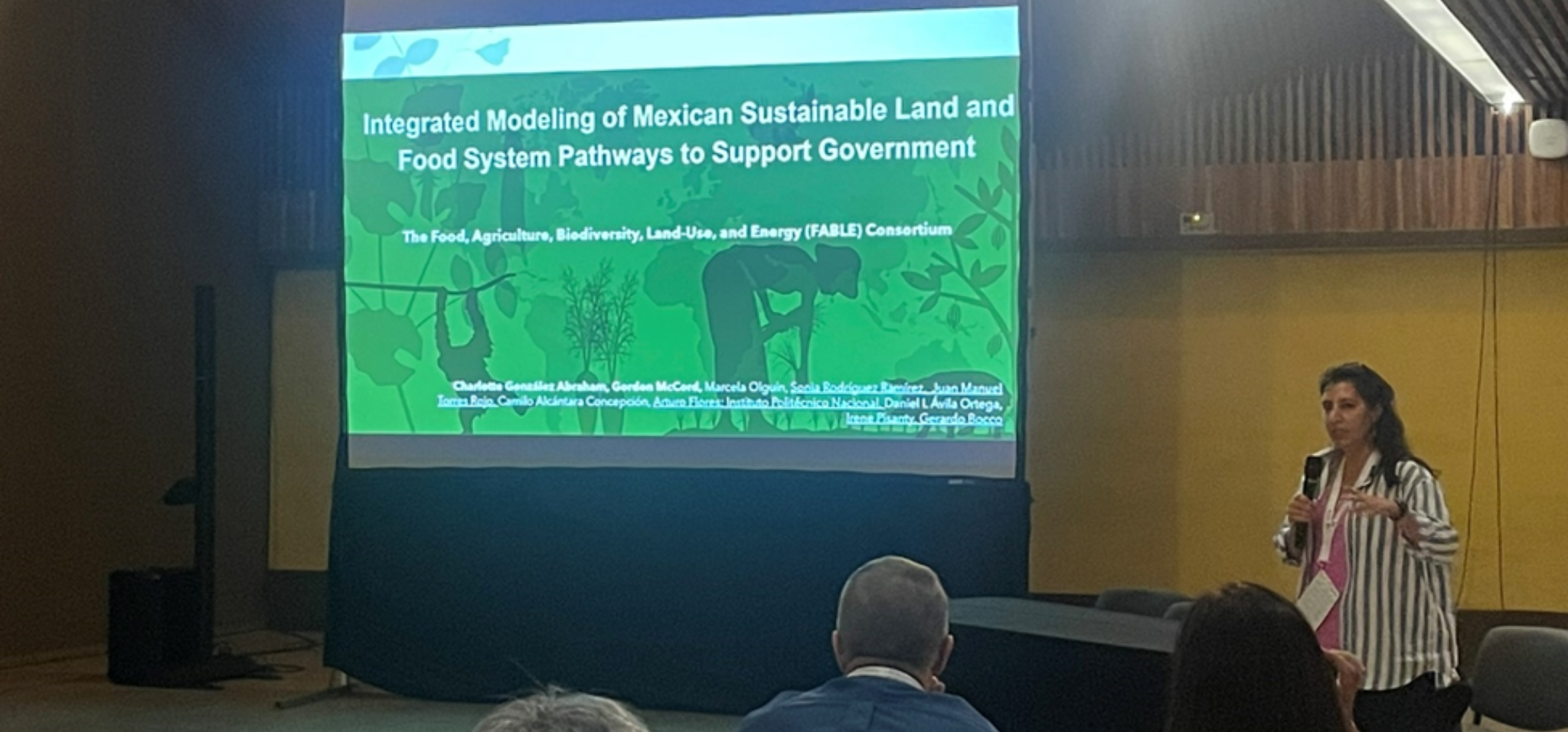
Charlotte Gonzalez Abraham (FABLE Mexico) starting her presentation on integrated Mexico’s land and food system.
René Reyes (Instituto Forestal, FABLE Canada) introduced the FABLE Canada team’s developments to addresses gaps in the FABLE Calculator to adequately compute forest management. He presented the Forestry Module that expands the capacity of the FABLE Calculator to assess tradeoffs and synergies between land-use sectors and the full impact of different policies. Released in November 2023 and already adopted by FABLE teams from Canada and Denmark, the forestry module integrates diverse forest types, management approaches, and the fiber cascade to better assess interactions between agriculture and forestry. Preliminary findings showcased its ability to influence key indicators such as carbon emissions, trade, and socio-economic outcomes, highlighting the broader environmental and social impacts of forest management.
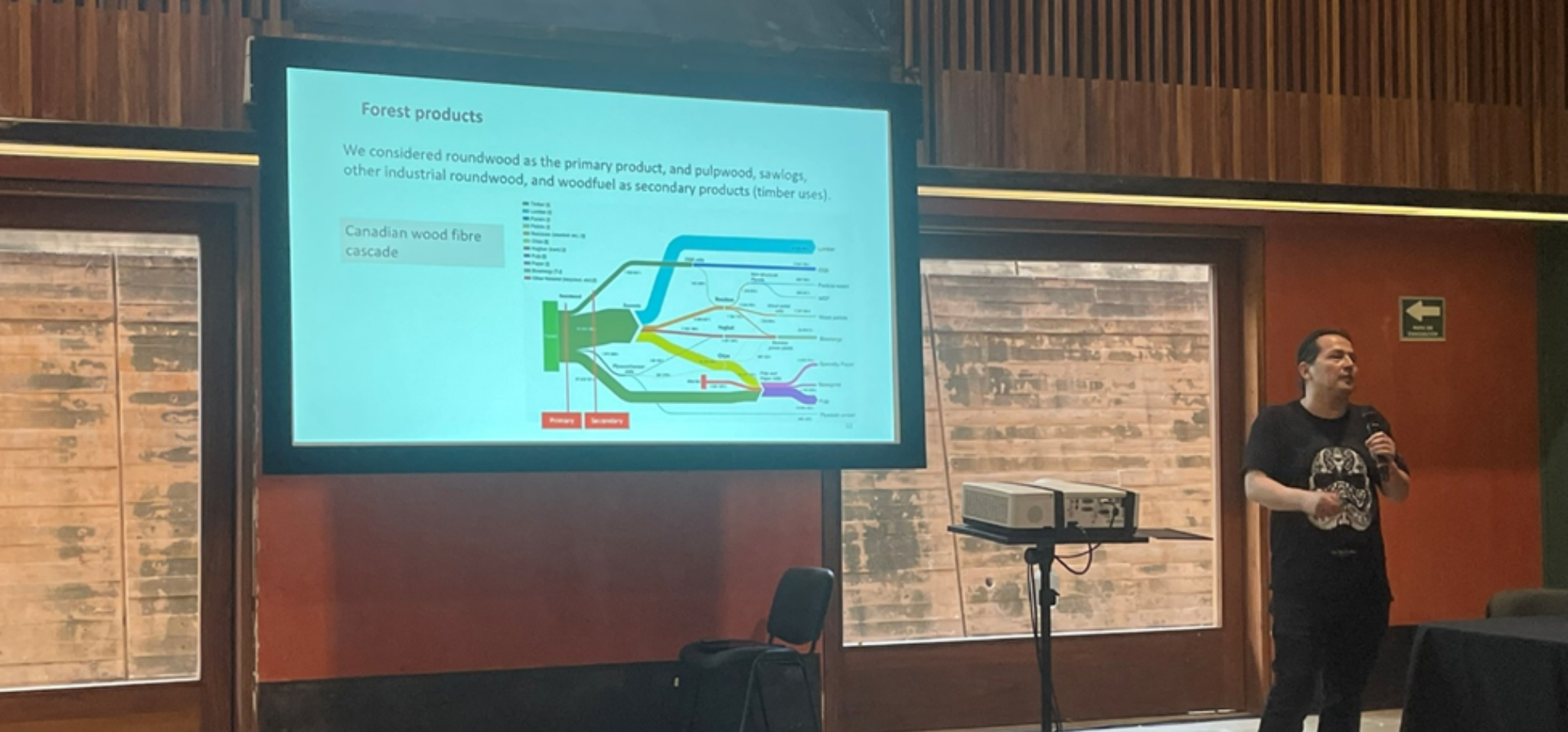
René Reyes (Instituto Forestal, FABLE Canada) presenting the forests products that has been added to the calculator with the Forestry Module.
Konstantinos Dellis (AE4RIA, FABLE Greece) presented results of modelling a higher uptake of the Mediterranean diet and its potential to simultaneously increase food security and support climate-resilient development in Greece. The session included findings from using the FABLE Calculator for Greece, assessing the impact of the dietary shift on land use, AFOLU emissions, biodiversity, and the value of agricultural production across various scenarios. Importantly, the results incorporate feedback from stakeholders in the food and health sectors, along with updated national data. The findings highlighted benefits such as lower emissions, improved biodiversity, and reduced food insecurity in climate-vulnerable regions.
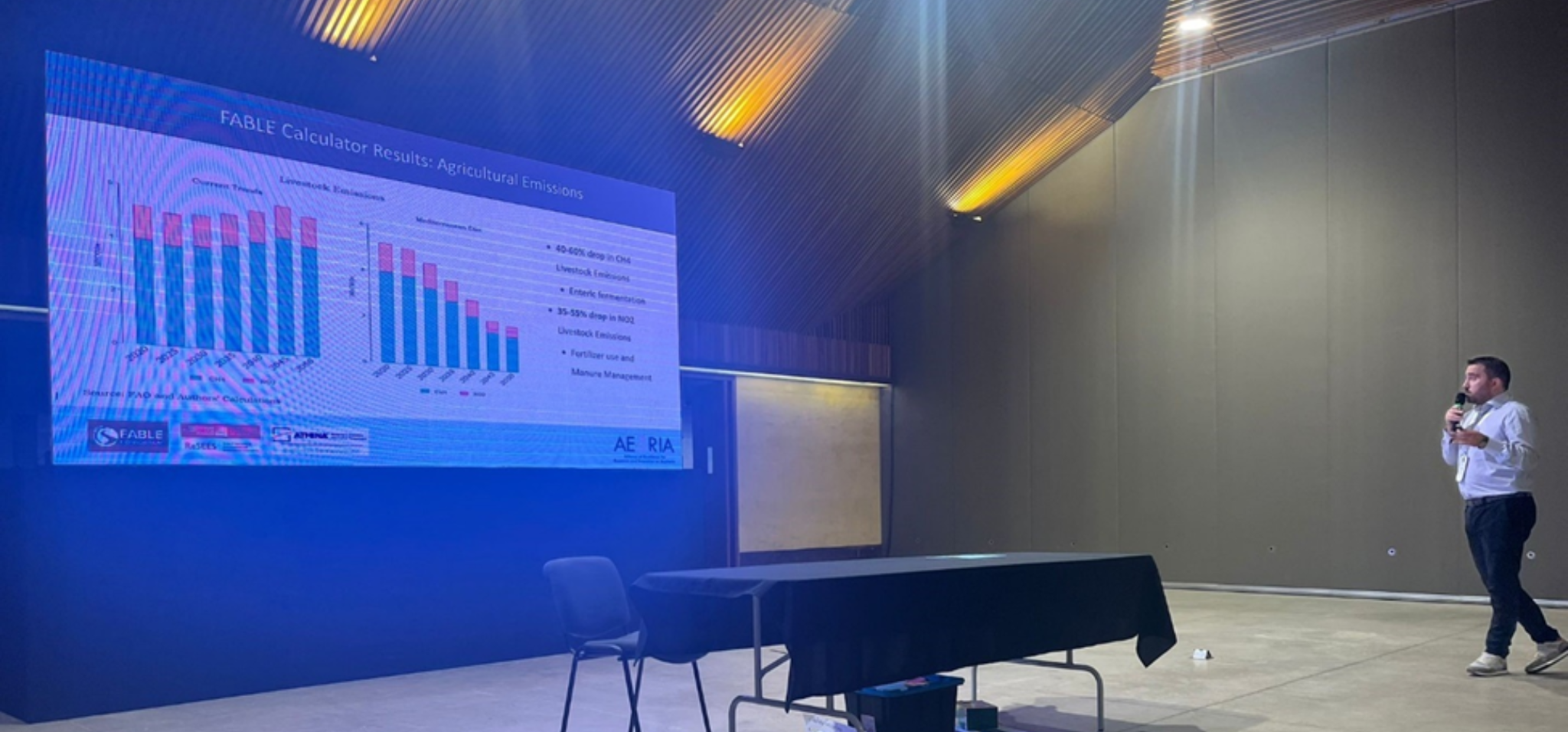
Konstantinos Dellis (AE4RIA, FABLE Greece) illustrating the impact of the Mediterannean diet shift on agricultural emissions.
Sarah Jones (UK Centre for Ecology and Hydrology, FABLE UK) presented her results from modelling land-use transformation across the UK’s four devolved nations, using sub-national FABLE Calculators to emphasize how sub-national policy differences shape progress toward the UK net-zero targets. Her research examined the role of afforestation, agroecology, and dietary shifts in achieving climate and biodiversity goals at the UK and regional levels. Collaborative efforts with the Welsh authorities allowed the FABLE UK team to identify the potential of land-sparing and land-sharing approaches and demonstrate how regional autonomy in agricultural and environmental policies can influence both individual and collective outcomes. Additionally, the FABLE UK team conducted spatial analysis of projected land-use changes which provided policymakers with critical insights into the synergies and trade-offs of targeted climate and biodiversity strategies.
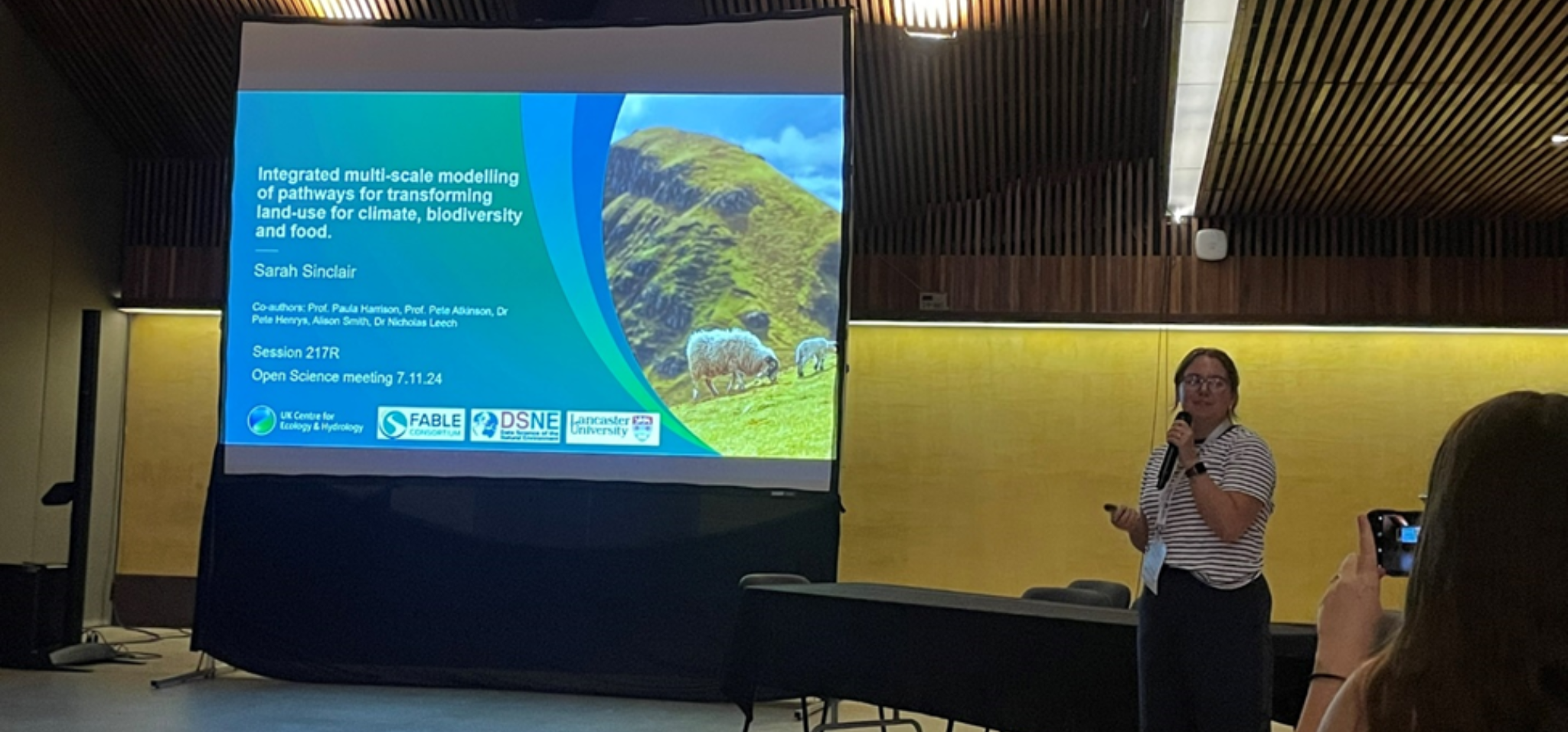
Sarah Jones (UK Centre for Ecology and Hydrology, FABLE UK) on how sub-national policies shape land-use transformation and progress toward UK net-zero goals.
Federico Frank (INTA/IIASA) presented long-term pathways to address Argentina’s complex challenges in food and land-use systems, including GHG emissions, biodiversity loss, nutrient outflows, chemical pollution, water stress, and unsustainable livelihoods for farmers. The team developed three mid-century pathways using a multi-model approach that combined food and land system analysis (FABLE Calculator), land-use allocation (Dinamica EGO) and conservation prioritization (prioritzr), as well as stakeholder workshops. Results suggest Argentina is well suited to meet multiple SDGs and to contribute to meet related global targets, provided businesses, civil society and government agree to completely halt deforestation, promote afforestation and reforestation, and increase agricultural productivity to spare natural lands.
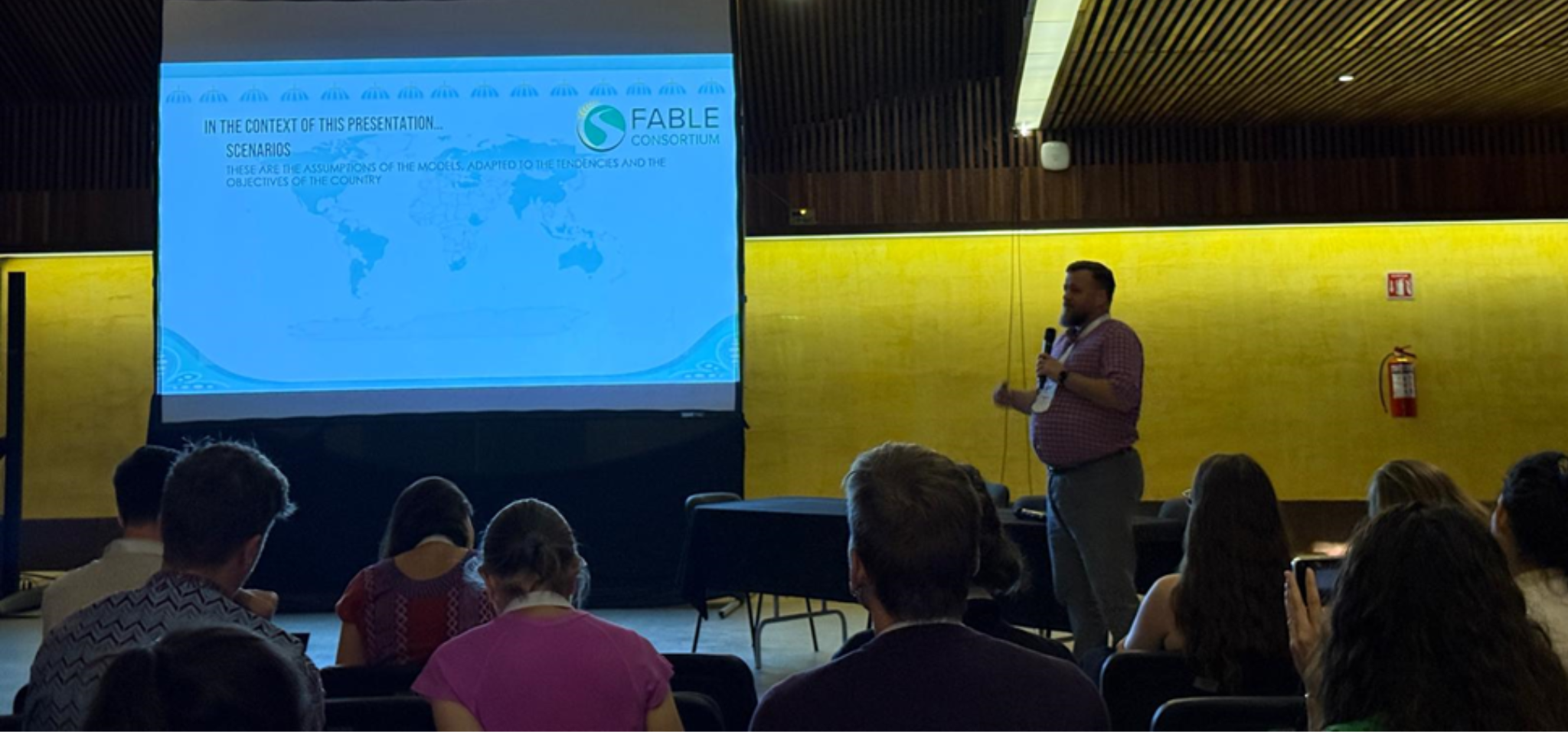
Federico Frank (INTA/IIASA) presenting three pathways on sustainable food and land-use system in Argentina.
From the FABLE Secretariat, Davide Cozza (SDSN) presented “Integrating Equity in Mitigating Agricultural GHG Emissions for Global Sustainability” at a poster session. The study sought to operationalize the Paris Agreement's principle of “common but differentiated responsibilities” and explore how three fair-share approaches—historical responsibility, economic capability, and equality—can inform GHG emission reduction targets in the agricultural sector. The analysis included a comparison between current (2020) and projected (2050) agricultural emissions under two key scenarios: the Current Trends pathway and the Global Sustainability pathway, against fair-share benchmarks. This dual comparison revealed the gap between present and future trajectories and what would constitute equitable contributions to global sustainability.
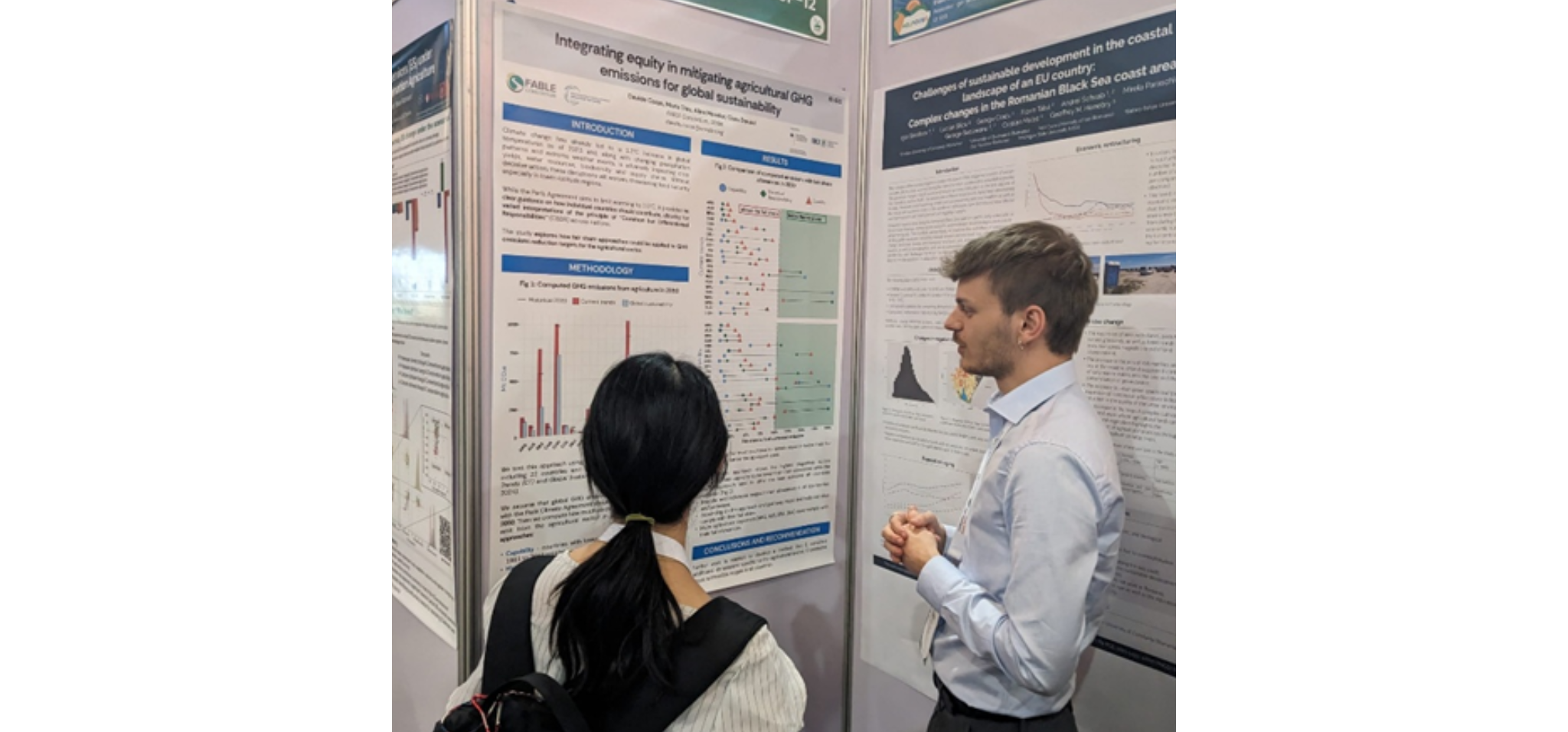
Davide Cozza (SDSN) discussing on equity approaches to mititgate agricultural GHG emissions.
Enhancing FABLE's impact through scientific collaboration
The Global Land Programme 5th Open Science Meeting demonstrated the important value of promoting exchanges within the scientific community to refine the FABLE tools and methods and support governments in long-term climate planning and decision-making. For the FABLE Consortium, participation in such discussions was invaluable to increase the robustness of our pathways, promote innovation in our tools, and have a larger impact in the transformation of our food and land-use systems.
